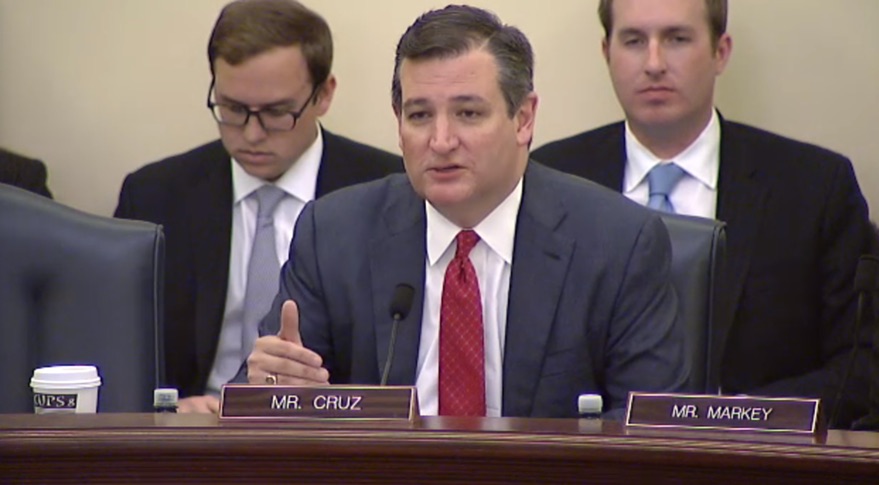Cruz to Hold Hearing on Updating the Outer Space Treaty

WASHINGTON — The chairman of the Senate's space subcommittee said May 16 that his committee will hold a hearing next week to hear testimony on possible updates to a 50-year-old treaty that is the cornerstone of international space law.
Sen. Ted Cruz (R-Texas) said in an on-stage interview during The Atlantic magazine's "On the Launchpad" event here that the hearing, scheduled for May 23, would explore modifications to the Outer Space Treaty of 1967 to better enable commercial space activities.
"We'll be hearing testimony both from lawyers who have studied the issues and also from business leaders that want to expand commercial investment in space," he said, "considering how do we update and modernize the treaty to reflect the realities of the modern world."
He said he was concerned that the treaty, crafted at the height of the superpower space race of the 1960s, does not reflect the needs and interests of emerging commercial space companies. "The central focus of that treaty was preventing nuclear weapons in space. That's a very good thing," he said. "But, 50 years later, we're in a very different environment."
Cruz said he didn't have specific changes to the treaty in mind. "I don't want to start by making decisions before we hear testimony and before we think through it," he said. He added he hoped that, like recent space-related legislation that has passed Congress, including the Commercial Space Launch Competitiveness Act of 2015, to win bipartisan agreement to pursue efforts to "modernize it to create the incentives for continued investment."
His comments are not the first time that he's indicated an interest in updating the treaty. At an April 26 hearing of the space subcommittee, he said in his opening statement that it was time for Congress to examine how the accord "will impact new and innovative activity within space."
One of the witnesses at that hearing, Bigelow Aerospace founder Robert Bigelow, endorsed an update to the Outer Space Treaty to support commercial ventures. He said he was particularly interested in the ability to create a zone of non-interference, or safety buffer, around future bases on the moon or other celestial bodies.
Breaking space news, the latest updates on rocket launches, skywatching events and more!
The Outer Space Treaty allows any nation that is a party to it to propose amendments, which enter force for those agreeing to them once a majority of the nations who have ratified the treaty do so. As of this year, 105 nations had ratified the Outer Space Treaty, including all major spacefaring nations.
Cruz emphasized his support for the commercial space industry as part of a broader effort to ensure U.S. leadership in space, working in conjunction with NASA-led space exploration efforts. "In a world of scarce resources, it is unlikely that you're going to see Congress appropriate all the funds we need for space exploration if it was only from taxpayer funds," he said.
"We want to create an environment where there are incentives in the private sector to invest billions and billions of dollars to ensure America's continued leadership and get leverage so that, for every dollar of taxpayer funding, you have many multiples of that of private funding that is focused on developing space exploration," he said.
He believed that, with those incentives, commercial space could be lucrative as well. "I'll make a prediction right now: the first trillionaire will be made in space," he said. "It will be the entrepreneur who invests and makes discoveries in space that we cannot even envision."
This story was provided by SpaceNews, dedicated to covering all aspects of the space industry.

Jeff Foust is a Senior Staff Writer at SpaceNews, a space industry news magazine and website, where he writes about space policy, commercial spaceflight and other aerospace industry topics. Jeff has a Ph.D. in planetary sciences from the Massachusetts Institute of Technology and earned a bachelor's degree in geophysics and planetary science from the California Institute of Technology. You can see Jeff's latest projects by following him on Twitter.

